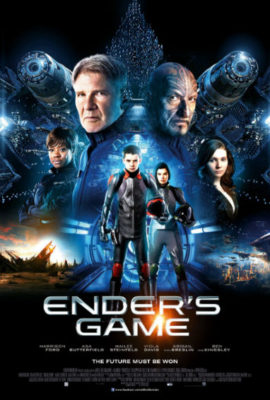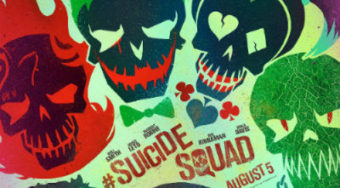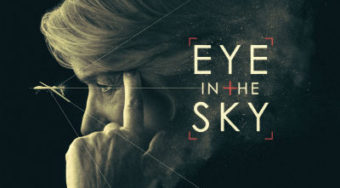Film Reviews

Ender's Game
Genre: Action & Adventure
Director: Gavin Hood
Cast: Harrison Ford, Asa Butterfield, Hailee Steinfeld, Viola Davis, Abigail Breslin, Sir Ben Kingsley
MPAA-Rating: PG-13
Release Date: November 1st, 2013
Eye in the Sky Reviews
The new thriller Eye in the Sky has a relatively small focus but raises enormous questions about warfare today. Written by Guy Hibbert, buy information pills
the 104-minute feature raises questions about drone warfare and the bureaucratic boundaries and legal ramifications that — rightly or wrongly — hinder the military’s ability to freely engage in this new type of combat. The drama leaves viewers not with answers but with legitimate questions about the ethics and the undeniable repercussions of drone strikes.
The characters here are separated by continents, ranks and professions but they are all keeping an eye on one location: a small marketplace in Kenya.
In an English military command center, British Colonel Katherine Powell (Helen Mirren) leads an operation to capture several high-profile extremists who have been spotted near this marketplace. In a darkened room, she stands in control as she watches as her possible targets travel on a large screen in front of her. The mission is to capture the targets and in a well-lit London conference room, Lieutenant General Frank Benson (Alan Rickman, in one of his last performances) watches the situation unfold, surrounded by representatives of the country’s government.
In Nevada, a pilot named Steve Watts (Aaron Paul) commands the drone above the Kenyan marketplace, which provides surveillance of the area. On the ground in Kenya is an operative named Jama Farah (Barkhad Abdi), who is sent in to provide detailed surveillance of the building where several major high-profile terrorists stand feet away from a room that is packed with suicide vests.
These are the targets on the ground. These are the players who could potentially use those bombs to murder dozens of people in the marketplace.
With such a present threat, the order to capture them is tossed and the discussion moves quickly into whether or not these terrorists should be targeted by a missile strike even though they stand feet away from a busy marketplace, where a young girl is selling bread to the locals.
Despite the fact that most of the film is a discussion about warfare — rather than battle sequences themselves — director Gavin Hood is able to ratchet up the tension by hinting at the danger that these terrorists pose. He also uses the Oscar-nominated Abdi effectively by keeping Farah near the marketplace for much of the film where he is in danger of being discovered and even killed.
Much of the film is a debate about the ethics of drone strikes — and the difficulty in getting a strike approved by the political leaders who would be held responsible if the operation fails — and the cast does a stellar job in bringing different perspectives to life. As Colonel Powell, Mirren brings an undeniable intensity to the film that shows both a seriousness of purpose and an open proclivity to bullying. Yet, even when Powell is commanding an underling to lie, it’s never done maliciously. She has a job to do and doesn’t want anything to stand in her way.
Rickman, too, does an excellent job as a strong-willed military official who is surrounded by caustic politicians. The discussions in that conference room add a degree of pragmatic depth to the film that reveals a political hesitancy that is all too real. When the Attorney General argues that if the terrorist organization “kills 80 people, we win the propaganda war. If we kill one child, they do,” such a sentiment is shocking not because it feels out of place but because it legitimately raises questions about the political posturing of officials who know the dangers of botched mission.
After his stridency on the subject of drone warfare is criticized by a British politician, Benson offers one of the movie’s truest sentiments by noting “Never tell a soldier that he does not know the cost of war.”
Director Gavin Hood, who previously helmed the provocative Ender’s Game (2013), manages this multi-faceted production well, compellingly alternating between locations without losing his focus on the ground in Kenya. At times, the story does drag on a little much but the film’s methodical plot is never in doubt.
When the story’s end comes and some of the players — who have been confined to closed, dark rooms for much of the proceedings— finally enter more spacious spaces, no easy solutions have been revealed but more light has been spread on the difficulties of these decisions and that’s an achievement that the filmmakers here should be proud of.
Click here for more must-read reviews of the new film.
It’s been years since Harrison Ford starred in a meaningful sci-fi epic. But now the Oscar-nominated actor has returned to space for his new film Ender’s Game, malady
where he plays a gruff and tough colonel, try
whose animosity towards an interplanetary enemy knows few bounds.
Ford lends this picture a credibility that could get potential viewers into the theater. Fortunately for him, the story stands up on its own as a thoughtful and beautiful-looking epic that never hesitates to mix great visual effects with powerful themes.
As the story begins, Ender Wiggin (Asa Butterfield) is the typical loner at school who feels like the world is against him. His older brother enjoys picking on him and his classmates like beating him up. But like other unique loners (such as Harry Potter and to a lesser extent, Carrie), Ender is special. He’s a brilliant strategist and an eager student who knows how to overcome his more powerful opponents. But not only is Ender special but his school is special as well. It’s a training school for cadets wanting to become military commanders who will, if necessary, be called upon to eliminate an intergalactic army known as the Formics, which look like a species of giant ants.
Based on the novel by Orson Scott Card (and adapted to the big screen by writer/director Gavin Hood), the story focuses on Ender as he trains to become a military leader like no other. Early on, Colonel Graff (Ford) and his lieutenant Major Gwen Anderson (Viola Davis) spot talent in the young Ender, despite the fact that he has few friends to speak of. Actually, his lack of friends and loyalty is something that Graff views as an asset. “He must never believe anyone can help him,” he notes.
Ultimately, the solid story and the stirring visuals set the stage for something more powerful than a typical sci-fi drama. Throughout the proceedings, the characters speak about the cruelty of using children as soldiers in war and there’s some discussion about respecting one’s enemy so much that a kinship grows between two opponents.
Ender’s Game is a sci-fi drama that thematically speaks to the dangers of both war and the price of victory. It is a smart drama that casts Ford in a role defined by indifference, which is a pleasant departure from some of his more upbeat performances. Butterfield, as well, does an admirable job as the conflicted and thoughtful young leader who strives to win but questions the moral defeats that certain victories arrive with.
This summer Pacific Rim had the visual power to impress viewers but lacked the emotional intensity and provocative themes of Ender’s Game. Unlike some films that simply seek to entertain, this sci-fi drama attempts to make people think about larger issues of war and peace. It is a commendable drama and one hopes that it serves as the start of a franchise that further explores this visually-satisfying and thematically-powerful world.
Review by: John Hanlon












